The qualifying learner will be able to communicate effectively with and behave considerately to customers, visitors, and colleagues of different cultures.
The qualifying learner will be able to communicate effectively with and behave considerately to customers, visitors, and colleagues of different cultures. Learners should also be able to take steps toward resolving differences that arise due to cultural diversity. On achievement of this unit standard, the learner will understand and be able to: Analyse cultural diversity in the South African workplace. Discuss important generic aspects of cultural groups. Address the needs and sensitivities of people of different cultural backgrounds.
Course Content
- A listing is made of the cultures that make up the South African workplace.
- A historical overview is provided of conflicts that have existed between various cultural groups in South Africa.
- Examples are given of stereotyping and perceptions that have developed with respect to culture.
- A summary is given of the cultural activities and practices associated with South Africa’s mainstream religions.
- The cultural views of at least three minor religions in South Africa are given.
- The effect that politics has played in shaping cultural attitudes in South Africa is explained using historical and present-day examples.
- The challenges inherent in creating a united, yet, culturally diverse workforce are explained with the use of examples of how the challenges may be overcome.
- The needs and sensitivities of people of different cultural backgrounds are identified with a view to understanding how best to meet their expectations.
- The problems associated with the migrant labour system are explained in terms of the labourer’s personal development, feeling of self worth and family ties and responsibilities.
- Suggestions are offered for changes to policies, procedures, habits and attitudes in order to promote harmony in a culturally diverse workplace.
- A distinction is made between fair and unfair discrimination pertaining to cultural difference as provided for in the South African constitution.
- A range of “isms” and “phobias” relating to cultural difference are described in the context of the workplace.
- Non-accredited: Short course only
- Duration: 1h 30m
- Delivery: Classroom/Online/Blended
- Access Period: 12 Months


